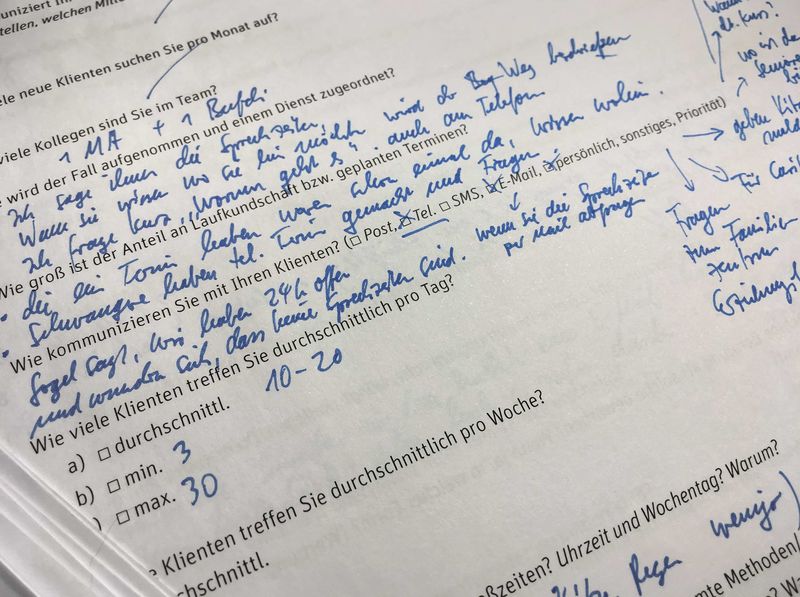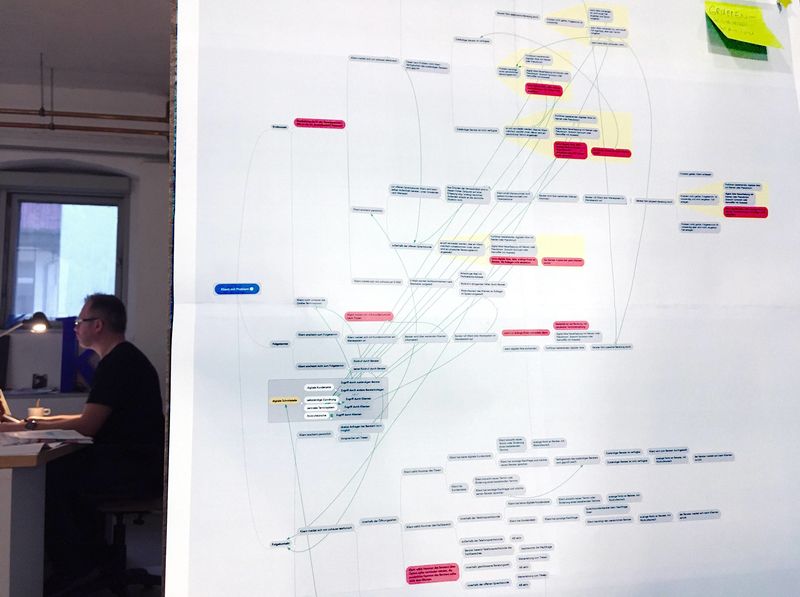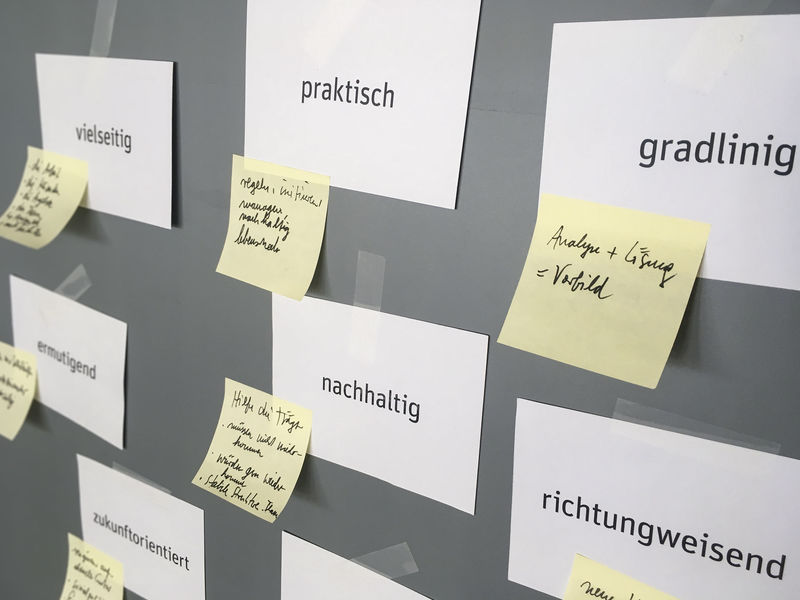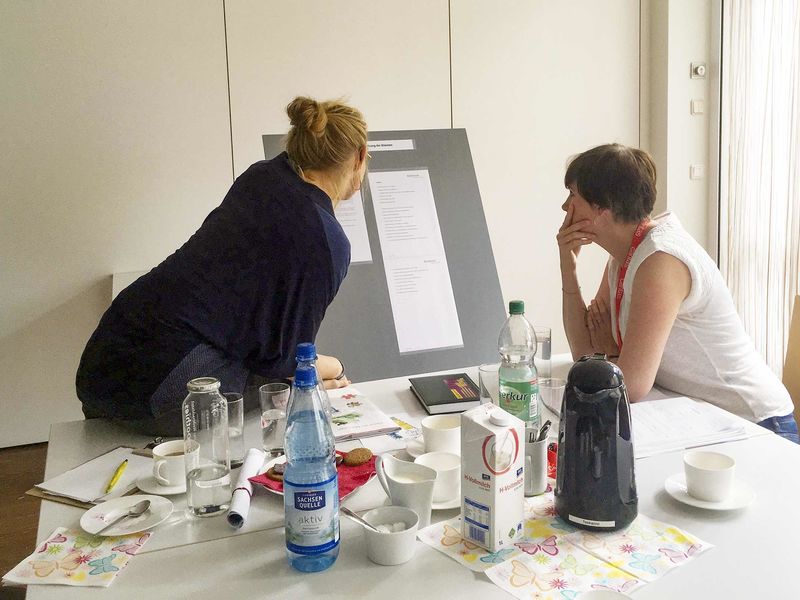How often does the visitor management of a possible help facility? From our perspective, were the consultation overview? Was the intended service design for a charity?
Caritas Leipzig faced the challenge of merging all 6 counseling areas in a new building to ensure a coordinated, efficient and stress-free process before and during the counseling sessions. The increasing number of visitors must also be taken into account. The advice center has not been adequately prepared for this.
The management of Caritas Leipzig thought of solving the problem with an improved number display and a solid room marking on the floor.
But it's not just a question of guiding visitors; service has to evolve with people. Growing numbers of clients and new wishes often contrast with outdated technology. As a result, processes are no longer manageable, working conditions deteriorate and employees suffer. Customers are dissatisfied and switch to other providers.
Service design for the Social counseling of Caritas Leipzig



Understand social counseling
In order to identify the core of the problem and to be able to develop a long-term and functional solution, collaboration sat in the counseling facility and documented the observation in the waiting area. Interviews were carried out with employees from the departments. 65 questions helped to gain an insight into the complex topic and to understand the different working methods of the consultants. The evaluation of the information revealed many common needs, desires and also fears.


Raising potential together
Inspired by three different customer journeys from the areas of service and visitor management at the beginning of the workshop, 4 interdisciplinary groups worked out solutions for joint and agile client management. The client's perspective was a target, a challenge and an opportunity at the same time.
The workshop results were evaluated and, in addition to the observations in the waiting area and the interviews, were the starting point for developing an alternative and optimal route to an appointment for a consultation.



There is a need for client management that improves collaboration, gives clear structures, is low-threshold and offers the departments options.



Digital solution
Digitization in social work is a sensitive topic, but not a contradiction in terms. In order to bring this closer to all those involved, the term “Green Path” was used. It combines the following sub-areas: appointment system, office hours concept, call system, self-allocation, ticket system, client file. In an easy-to-understand language and in an appealing form, the functionality was explained in a leporello, the requirements stated and the advantages of an improved service highlighted.
Promise of the "Green Path"
– Communication optimization
– no duplication of work, e.g. when recording client information
– central availability
– interdisciplinary cooperation
– Freedom for the teams through adjustments
– a framework / basic structure that makes planning possible, works solidly, can be expanded, allows flexibility
– simplifies training for new employees
– everyone has insight and knowledge and can help one another
– concentrated work, fewer disruptions from, for example, telephone inquiries
– Overview of processes (statistics on popular consultation times) and optimization opportunities
– Organizing and capturing client data can be automated to a greater extent, many opportunities for clients (in communication and time windows), thereby creating a low inhibition threshold
– transparent to the client
– Can be used decentrally, e.g. at other locations, mobile or at home
– more time for advice, more time for more clients, shorter waiting times for an appointment
– Service for clients through independent booking of appointments

More than guided tours
With the holistic concept, Caritas Leipzig has a master plan for digitizing visitor management that makes them fit for the challenges of the future and improves their market position.
Project facts
Client: Caritas Leipzig e.V., Leipzig
Services: Service design and visitor management in the advice center
Period: July 2019 – January 2020
Collaboration: Jakob Gleisberg, Ulrich Scheel




